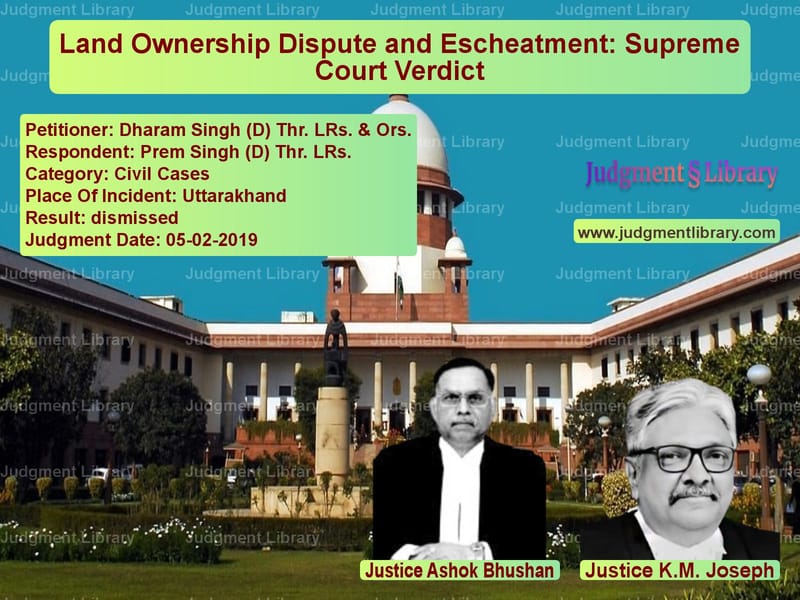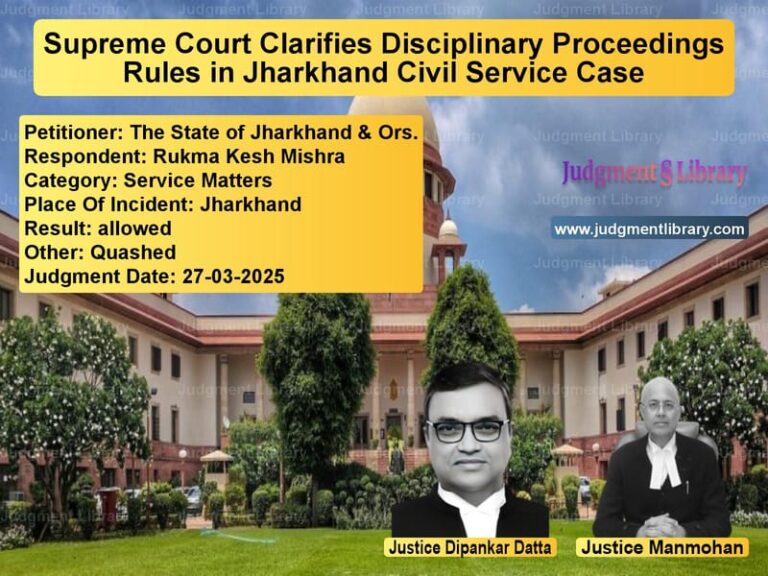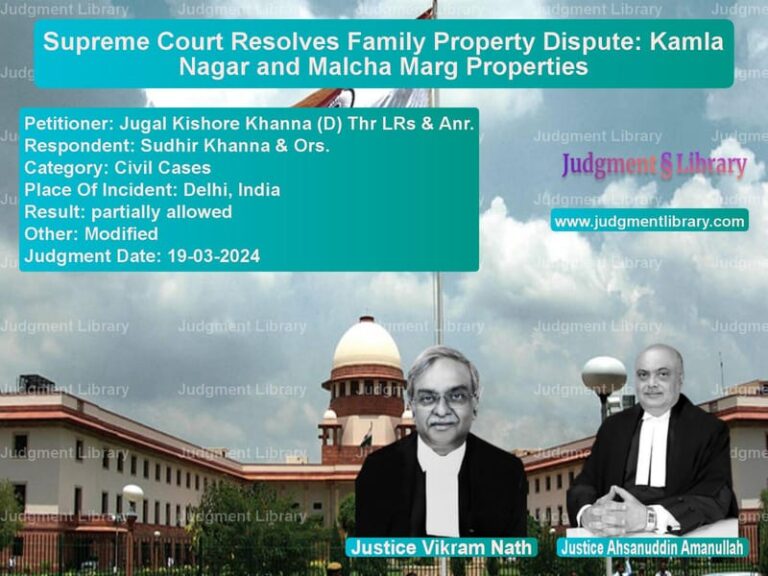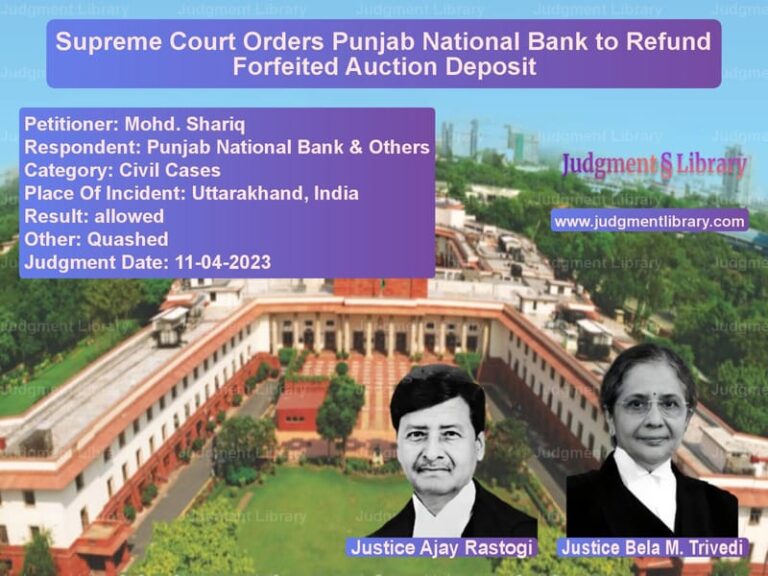Land Ownership Dispute and Escheatment: Supreme Court Verdict
The Supreme Court in the case of Dharam Singh (D) Thr. LRs. & Ors. vs. Prem Singh (D) Thr. LRs. examined a complex land ownership dispute arising from escheatment laws in Uttarakhand. The case revolved around land originally owned by Smt. Tulsa Devi, who passed away without legal heirs, resulting in the land escheating to the State. The key contention was whether the appellants, claiming occupancy, had acquired asami and sirdari rights over the land or whether the respondents had a rightful claim through government exchange orders.
Facts of the Case
- The disputed land was originally owned by Smt. Tulsa Devi, who died without legal heirs, leading to escheatment of her property to the State.
- Amar Singh, the predecessor-in-interest of the appellants, claimed continuous possession over the land and later asserted his rights as an asami and sirdar under the Kumaon and Uttarakhand Zamindari Abolition and Land Reforms Act, 1960.
- The respondents contended that the land was granted to their predecessors in exchange for land acquired by the government for construction purposes.
- The High Court of Uttarakhand overturned a trial court judgment in favor of the appellants, leading to the current appeal before the Supreme Court.
Petitioner’s Arguments
The appellants argued:
- That Amar Singh was recorded as an occupant in the revenue records before the cut-off date, thereby entitling him to asami rights under Section 10(e) of the 1960 Act.
- That the government order granting asami status was valid, and the subsequent entry by the Patwari should be upheld.
- That they continued in uninterrupted possession of the land despite alleged orders deleting their names.
Respondent’s Arguments
The respondents contended:
- That Amar Singh’s possession was unauthorized and that an official order had already removed his name from revenue records.
- That the land had been validly exchanged in lieu of acquired property and rightfully belonged to the respondents.
- That Amar Singh had relinquished possession in an official document dated 14.05.1956.
Key Observations by the Supreme Court
- The land belonging to Tulsa Devi had rightfully escheated to the State, and Amar Singh’s occupancy did not grant him ownership rights.
- The Assistant Record Officer had explicitly directed the deletion of Amar Singh’s name from the revenue records, making any subsequent claim unsustainable.
- The Patwari’s entry granting asami and sirdari rights was unauthorized, as only the Assistant Collector could make such a determination.
- The claim that Amar Singh continued in possession despite the official deletion of his name was unsubstantiated.
- The land had been exchanged by the State for acquired property, confirming the respondents’ legal possession.
Final Judgment
The Supreme Court dismissed the appeal, affirming the High Court’s decision. It held that the appellants had no legal claim over the disputed land and that the respondents’ possession was legitimate. The Court emphasized the principle that unauthorized entries in revenue records do not confer legal rights and that escheated property remains within the State’s domain unless lawfully transferred.
Petitioner Name: Dharam Singh (D) Thr. LRs. & Ors..Respondent Name: Prem Singh (D) Thr. LRs..Judgment By: Justice Ashok Bhushan, Justice K.M. Joseph.Place Of Incident: Uttarakhand.Judgment Date: 05-02-2019.
Don’t miss out on the full details! Download the complete judgment in PDF format below and gain valuable insights instantly!
Download Judgment: Dharam Singh (D) Thr vs Prem Singh (D) Thr. Supreme Court of India Judgment Dated 05-02-2019.pdf
Direct Downlaod Judgment: Direct downlaod this Judgment
See all petitions in Property Disputes
See all petitions in Succession and Wills
See all petitions in Landlord-Tenant Disputes
See all petitions in Specific Performance
See all petitions in Damages and Compensation
See all petitions in Judgment by Ashok Bhushan
See all petitions in Judgment by K.M. Joseph
See all petitions in dismissed
See all petitions in supreme court of India judgments February 2019
See all petitions in 2019 judgments
See all posts in Civil Cases Category
See all allowed petitions in Civil Cases Category
See all Dismissed petitions in Civil Cases Category
See all partially allowed petitions in Civil Cases Category







